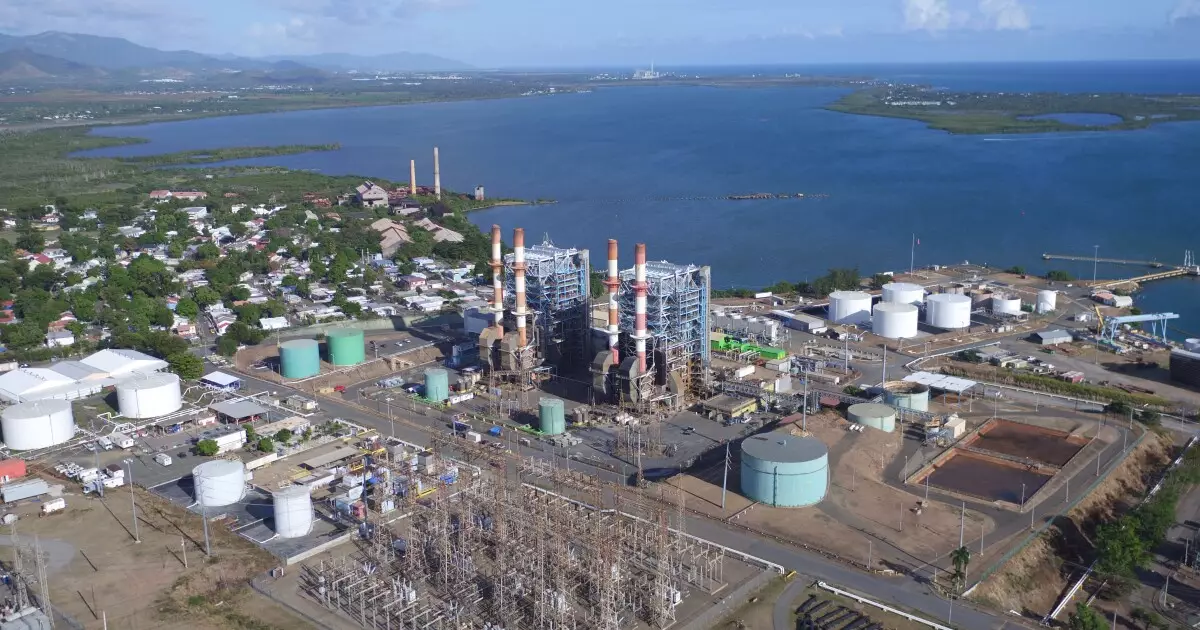In the tumultuous waters of fiscal governance, few crises stand out as starkly as the Puerto Rico Electric Power Authority (PREPA) bankruptcy situation. The recent disputes over a staggering $3.7 billion administrative expense claim have laid bare the complexities and contradictions inherent in the relationship between the Puerto Rico Oversight Board (FOMB) and bondholders. As we navigate this fiscal quagmire, it’s crucial to recognize how misaligned interests and legal interpretations can amplify the suffering of ordinary Puerto Ricans while aggrandizing financial elites. This scenario is a vivid example of how the repercussions of financial decision-making disproportionately impact vulnerable populations, carving a path of anxiety and uncertainty for the inhabitants of the island.
The Role of the Oversight Board
Tasked with guiding Puerto Rico’s recovery since its financial crisis erupted, the Oversight Board often finds itself in the crosshairs of criticism. Its recent assertions that bondholders’ claims must be subordinated to other government obligations raise questions about fidelity to the principles of equitable governance. The Board’s position, while defending the commonwealth’s plan of adjustment, implies that bondholders are not entitled to claim against any potential revenue reserved for public welfare. This is not merely a fiscal technicality; it’s a moral dilemma that raises eyebrows across the political spectrum.
There’s a hint of paternalism in the Board’s rhetoric, suggesting that it knows best how to manage PREPA’s revenues. While perhaps well-intentioned, such an outlook risks edging toward a form of financial despotism, where bondholders—many of whom are ordinary investors—are marginalized for the sake of preserving a bureaucratic orthodoxy. The court’s involvement further complicates this tense dialogue, revealing that the path forward is littered with legal precedents that seem to favor the agency over the very citizens it’s meant to protect.
The Bondholders: Villains or Victims?
On the other side of the courtroom, the bondholders present themselves as knowing victims of a complicated narrative. Their contention that the Oversight Board is undermining their rightful claims by consuming their collateral without compensation is a testament to the convoluted nature of the law governing such financial crises. They argue that PREPA’s actions—far from being independent expenditures—draw significantly from their own future returns. Their quest for a $3.7 billion payout post-bankruptcy has the flavor of desperation in the face of a labyrinthine financial system that seems designed to shield the powerful.
Moreover, the bondholders’ reliance on constitutional language to work around the purported ambiguities in governing statutes illuminates the broader tensions between private interests and public stewardship—a classic liberal concern. The juxtaposition of the board’s proclamations against the bondholders’ cries for fairness encapsulates a battle between fair dealing and institutional arrogance. What’s particularly worrisome is the prospective outcome: If both sides continue to dig in their heels, ordinary citizens could bear the brunt of a drawn-out legal battle.
The Reality of Puerto Rican Lives
As the financial titans squabble over immense sums, the reality for everyday Puerto Ricans remains grim. The mention of PREPA being in a cash-strapped position since the onset of the bankruptcy undoubtedly resonates with those who have witnessed steep electricity prices, feeble infrastructure, and dwindling public services. This isn’t merely a fiscal exercise; it’s a matter of life and death for many families relying on stable electric service for their livelihoods.
What is overlooked in the legal minutiae and court filings is the human aspect of this crisis. The Oversight Board—despite its regulatory authority—should be acutely aware of the delicate ecosystem it operates within. Its decisions, underpinned by legalistic phrasing and complex codes, should not overshadow the stark realities facing Puerto Rican citizens. The notion that PREPA can operate as a debtor devoid of accountability to its people raises troubling questions about who holds power in this narrative: the bureaucratic elite or the very citizens who shoulder the burdens of mismanagement.
The Path Forward: Striking a Balance
The dire need for a resolution that considers the interests of all parties is paramount. Striking a balance between overseeing effective financial recovery and ensuring that those affected have their voices heard is not only a legal necessity but a moral imperative. Both the Oversight Board and the bondholders must confront the ethics of their positions, recognizing that their decisions extend far beyond dollars and cents into the lived experiences of real people. Only by fostering a cooperative spirit can the rich tapestry of Puerto Rico’s future begin to mend. If dialogues remain tethered strictly to profit margins and statutory narratives, the lights may flicker dim more than just physically—they may extinguish the hope of a vibrant and resilient Puerto Rico.

